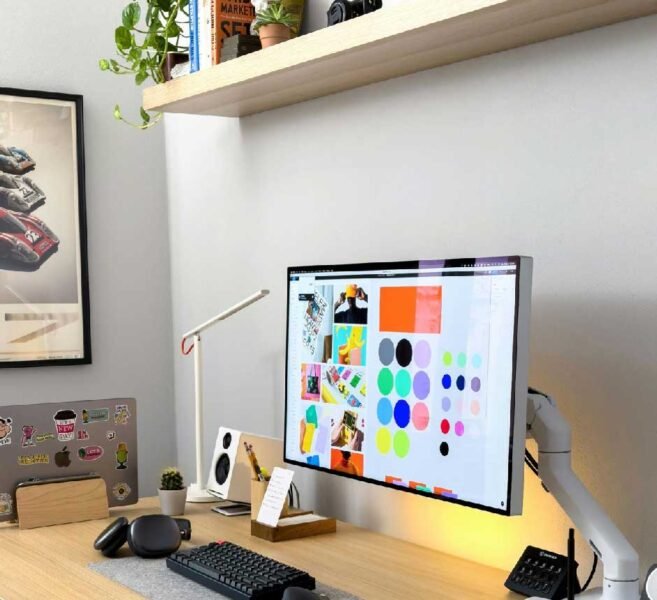Skip to the good bit
ToggleIn today’s hyper-digital economy, the way we showcase our professional value is undergoing a massive transformation. Resumes are no longer the first or most impactful introduction a potential employer has to a candidate. Instead, it’s often your digital footprint — your curated online presence — that makes the first impression.
Just as a trusted SEO consultant in Singapore works behind the scenes to help a brand rise in Google rankings through strategy, relevance, and trustworthiness, individuals now need to take the same thoughtful approach to their own online presence. Welcome to the age where your personal brand is your new resume.
From Experience to Exposure: What Has Changed?
In the not-so-distant past, all a job seeker needed was a well-formatted resume listing qualifications, work history, and references. Today, that’s merely the starting point. Employers, collaborators, and clients now expect more. They’re Googling your name, scanning your LinkedIn posts, browsing your Twitter feed, and clicking on your blog before they ever send an email.
What they’re really trying to answer is:
“Does this person have a story that aligns with our values and goals?”
A resume lists your past. A personal brand tells the world who you are now, and where you’re going.
Why Personal Branding Is No Longer Optional
1. It Reflects Your Values and Voice
A well-developed personal brand goes beyond credentials. It reveals your voice, your tone, and your worldview. Are you passionate about ethical business practices? Do you bring humor to technical concepts? Your digital presence can reflect these nuances far more powerfully than a two-page resume ever could.
2. It Proves Your Expertise
Anyone can say they’re a “results-driven marketing strategist.” But only a few actually share case studies, publish thought leadership content, and engage in public discourse. These are all forms of passive proof — the kind that builds real credibility and thought authority.
3. It Attracts the Right Opportunities
When your online presence clearly communicates your passions and competencies, the right people find you — whether that’s a startup looking for a product designer or a podcast host seeking a knowledgeable guest.
4. It Builds Trust Before the First Handshake
Personal branding creates familiarity. If someone has already seen your posts, heard your ideas, and followed your work, you’re no longer a cold introduction. You’re already warm.
How to Build a Personal Brand That Works Like a Resume

Let’s break down the core elements of building a personal brand that not only reflects your story but also functions as a dynamic, living resume.
1. Clarify Your Personal Value Proposition
Start with self-inquiry:
- What problems do I love solving?
- What industries or topics excite me?
- What skills do I consistently bring to the table?
This isn’t just about labeling yourself with a job title. It’s about identifying the intersection of your skills, values, and impact.
Write it down in a single, tight sentence — this is your brand essence.
2. Optimize Your Digital Footprint
The reality is that the moment someone looks you up, your search results are your new resume header. Here’s how to make it count:
- LinkedIn: More than just a digital resume, this is your professional storytelling space. Use the headline and About section wisely. Fill in every section. Feature posts and media that reflect your expertise.
- Personal Website: Having yourname.com isn’t just for influencers. It gives you a controlled, centralized hub for your portfolio, blog, media features, and contact info.
- Social Media: You don’t have to be on every platform — but be intentional about where you are. For creatives, Instagram or TikTok. For writers or consultants, Twitter and Medium. Consistency and value matter more than volume.
- Content Platforms: Guest posts (like this one), LinkedIn articles, Substack newsletters — these all showcase depth. Use them to develop a niche voice and expand your influence.
3. Consistency Is More Valuable Than Perfection
Many people get overwhelmed trying to perfect their personal brand, then stall. In reality, what matters more is showing up consistently with thoughtful takes and relatable stories. Over time, your reputation grows not because you’re flawless, but because you’re authentic and reliable.
The Role of Content in Career Trajectory
The most effective way to build and reinforce your personal brand is through content — even if you’re not a writer by trade.
You could:
- Publish a blog post about lessons from a recent project.
- Share a carousel post on LinkedIn breaking down a concept in your field.
- Start a short-form video series with professional insights.
Content builds context. It allows potential employers and partners to see how you think and solve problems — things no resume can fully convey.
The ROI of a Personal Brand
Here’s what cultivating your brand can offer:
| Benefit | Resume | Personal Brand |
| Lists Experience | ✅ | ✅ |
| Shows Personality | ❌ | ✅ |
| Demonstrates Communication | ❌ | ✅ |
| Builds Trust | ❌ | ✅ |
| Attracts Inbound Opportunities | ❌ | ✅ |
| Evolves with Your Growth | ❌ | ✅ |
The numbers back this up, too. A U.S. Department of Labor brief on modern job search trends notes that showcasing soft skills, leadership potential, and cultural fit through online presence is increasingly crucial, especially for digital-native employers.
Personal Branding Isn’t Just for Entrepreneurs
This isn’t about becoming a YouTuber or social media influencer. Personal branding applies to:
- Corporate professionals looking to level up or pivot.
- Job seekers trying to stand out from hundreds of applicants.
- Creatives building a freelance client base.
- Developers, engineers, or designers trying to get noticed by the right teams.
It’s for anyone who wants control over their narrative — and these days, that’s just about everyone.
Tips to Get Started Right Now
- Audit Your Online Presence
Google your name. What shows up? What doesn’t? Where can you improve? - Update Your LinkedIn Headline
Use keywords, but make it human. “Helping early-stage startups build investor-ready pitch decks” is better than “Strategic Consultant.” - Write One Thoughtful Post a Week
LinkedIn, Medium, Instagram — wherever you’re active. Show up, even in small ways. - Ask Three People to Describe You Professionally
This can help you understand your brand from the outside in. - Pick One Platform to Focus On
You don’t need to be everywhere. Just be consistent and valuable somewhere.
In the same way that a trusted SEO consultant in Singapore helps businesses gain visibility and authority online, building a personal brand gives you the power to control your professional narrative, boost your reach, and attract the right people and opportunities.
Your resume might get your foot in the door — but your personal brand builds the room around you. It tells a story that spans beyond bullet points. It gives people a reason to trust, remember, and choose you.
So if you’re still polishing your CV, go ahead — but don’t forget to update your LinkedIn, tweet your perspective, or share that blog post too. In today’s world, the strongest candidates aren’t just qualified. They’re visible, relatable, and unmistakably branded.







